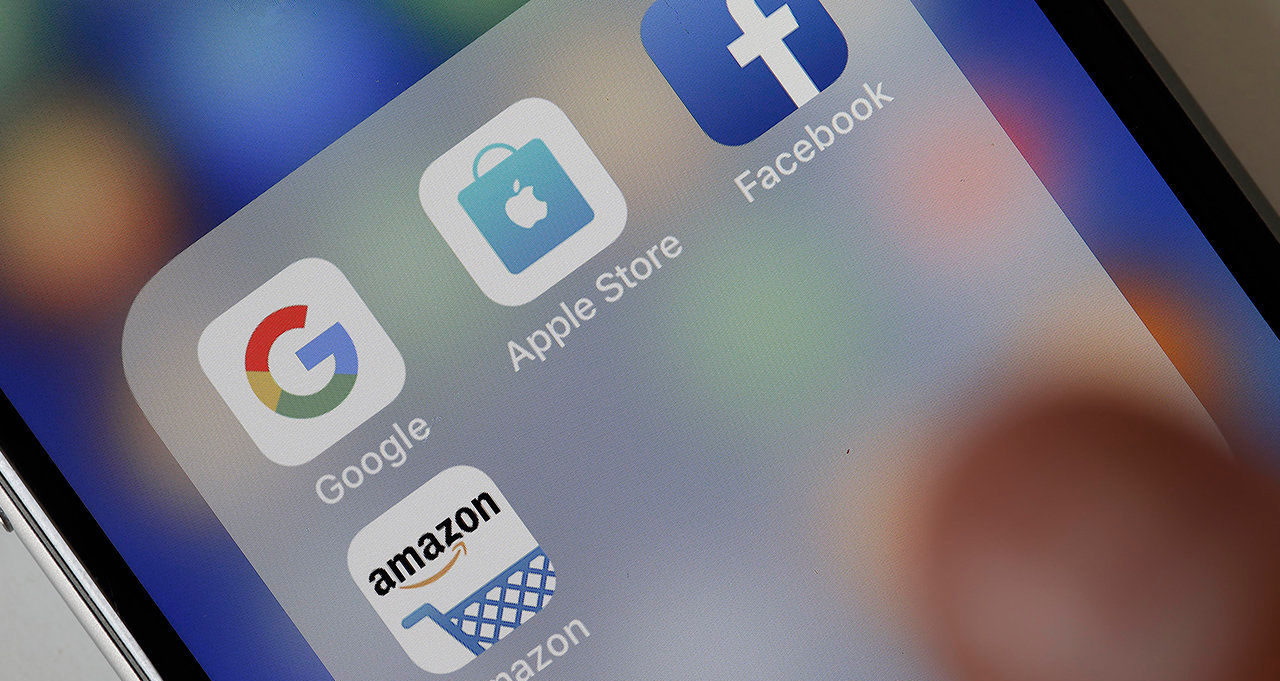Last week, the House Judiciary subcommittee on antitrust released its long-awaited report regarding competition issues at Facebook, Apple, Amazon and Google. The report, which was sixteen months in the making, asserts that these Big Tech companies enjoy monopoly privileges due to their specific business practices.
What does the report actually claim?
Amazon
The main issue is Amazon’s use of third-party seller’s data. The subcommittee heard from many sellers who would often find that their most successful products had been imitated by Amazon and then they’d see their profits collapse overnight. On top of this, the report tells of Amazon staff routinely pulling seller data to analyse market opportunities, then setting up successful third-party stores to capitalise. Additionally, Amazon frequently denies advertising for products that directly compete with their own and often place their own products first on searches for competitor’s products.
Amazon clapped back with a 1,400 word blog post denying the claims and saying that it is not a conflict of interest to run third-party and own brand products on the same site, claiming that should the site be split in two, that this would harm customers as they would find it harder to compare prices. They made no claim in the blog post regarding seller’s data.
Facebook was pulled up on their habit of buying up smaller companies before they had the chance to compete with the social media giant. The subcommittee pointed specifically to the acquisition of Instagram and WhatsApp in 2012 and 2014 respectively.
Facebook’s response took issue with the idea that their mergers were harming the customers saying that “a strongly competitive landscape existed at the time of both acquisitions and exists today. Regulators thoroughly reviewed each deal and rightly did not see any reason to stop them at the time.”
Apple
Apple is currently the centre of an expanding war on its App Store. Developers and the subcommittee say that Apple has a monopoly over where iPhone users get their apps which allows them to make “supra-normal profits” while ranking their competitors lower in search results. More specifically, Apple seems to over charge developers, who need the App Store to reach around 55% of the American mobile market and insist that they take a 30% cut of all transactions done through their system.
Apple defends this by rightfully pointing out that their charge is “firmly in the mainstream of those charged by other app stores”, this is backed up by the likes of the Play Store and Steam (a video game distribution service) also taking a 30% cut of transactions.
Like Amazon, Google is being brought up on claims that they use their dominant position within search engines to boost their own services. A prime example is when Google advertised their new search engine Chrome in the top corner of their search page. According to the report, Chrome employees raised these concerns back in 2009.
Google’s response was to say that the “goal of antitrust law is to protect consumers”, not help rival businesses and they claim that breaking up Google’s products and services would “harm the free services (Americans) use every day”.

Moving Forward
The subcommittee was light on specific legislative drafting. The first two solutions being obvious: strengthening antitrust laws and enhancing enforcement. The remaining six points focused on the specific problems raised in the report. First, they recommend introducing legislation that will focus on “structural separation and line of business restrictions”, essentially meaning that Big Tech firms should either be functionally broken up (i.e. legislation will tell the firms how to structure themselves) and/or be restricted to certain markets that do not bring them into competition with companies that rely on their services.
Secondly, they suggest Congress should “implement rules to prevent discrimination, favouritism, and self-preferencing”. Thirdly, they note “that Congress (should) consider data interoperability and portability to encourage competition”. Such legislation would make it easier for firms to enter the digital markets and make it simpler and less costly for consumers to switch devices or services.
Fourth – and this is important – that “any acquisition by a dominant platform would be presumed anticompetitive unless the merging parties could show that the transaction was necessary for serving the public interest”. This would put an onerous requirement on Big Tech and could even prohibit them from making sound mergers. Fifth, “consider legislation to provide news publishers and broadcasters (the ability) to collectively negotiate with dominant online platforms”, with the aim here being to help local news publishers struggling under Google and Facebook. Finally, to “prohibit (the) abuse of superior bargaining power” over third parties in an effort to ensure Big Tech cannot use these abilities to better protect their market dominance.
While it will take time for these ideas to manifest into actual policies, we may see some resistance from republicans who don’t want to put these businesses under antitrust burdens. However, should Democrats manage to flip the senate this November, there would be nothing standing in their way of throwing their full weight behind these ideas. If they can’t manage that, there’s a strong chance that even with a Democrat in office, a republican lead senate may quash any legislation coming their way, just like the last six years of Obama’s administration.
Photo Credits: Getty Images

